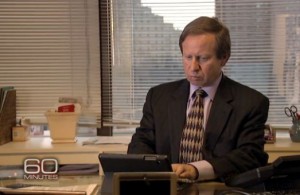Is Cleantech on Life Support?
-
-
slice.mit.edu
Filed Under
Recommended
Questions about cleantech’s future, including that of wind, solar, hydro-power, and other alternative energy sources, were put to Steven Koonin PhD '75, President Obama’s former Under Secretary for Science and current director of NYU's Center for Urban Science and Progress on 60 Minutes this week.
In her story, CBS correspondent Leslie Stahl focused on Silicon Valley investor Vinod Khosla, who has spent billions of dollars of his own money to support alternative fuel startups, many of which have relied on stimulus funds from the U.S. government.
Koonin, who supported many such ventures during his term, gave candid responses to Stahl about cleantech’s successes and failures four years after the stimulus funding was approved.
“I think there are significant developments that have come out of that spending that impact our energy system now, new technologies demonstrated,” Koonin said. “I think it was good value for the money.”
Asked about the Solyndra scandal and the failure of other clean-energy startups like Range Fuels, Abound Energy, A123 and Fisker to get off the ground, Koonin had mixed feelings.
“There are parts of [cleantech] that are on life support right now… I put some of the major blame on the government, both the executive branch and Congress, for an inability to set a thoughtful and consistent energy policy.”
Khosla responded to critiques of the cleantech industry with vehemence. “I am trying. And they're sitting there doing nothing. They're being the nay-sayers, the pundits who say why it can't be done. But they won't try.
Koonin has also grown weary of the startup mentality of investors who do not have the patience for a payoff 20 or 30 years down the road. Wangxiang, a company that acquired many stimulus-funded American ventures after they failed to earn profits, was cited as an example of the contrasting long-term view that many Chinese firms can take.
Tesla motors, a firm focused on creating top of the line electric and hybrid vehicles, was also praised for its success. The company, for which many MIT alums work, was #1 on the Nasdaq index of the 100 largest nonfinancial companies in 2013.








